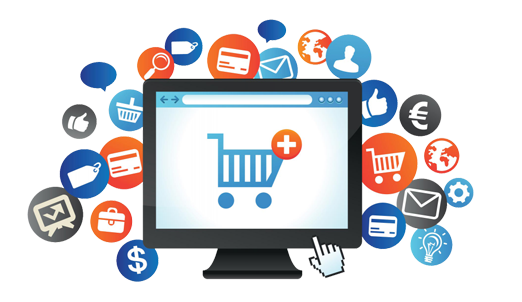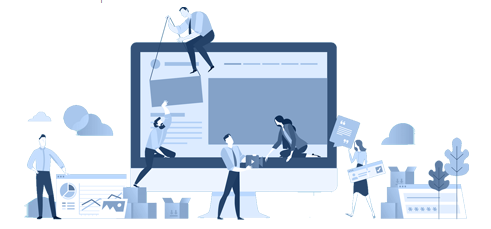In acknowledgement of the unprecedented impact of e-commerce, we design self-manageable platforms that will save time and help you reach your target audiences exactly as you wish to be perceived. We assist and support to acclimatize you to the dynamics of e-commerce ecosystems and empower you to capitalize on the latest market trends.

There are two options available for building an ecommerce website – one can either use managed (hosted) ecommerce platforms like Shopify and BigCommerce or open-source Content Management Systems (CMS).
As the name indicates, a hosted ecommerce platform is hosted on a server that you will not have access to, while CMS-based websites are self-hosted on server space (such as Bluehost) you will have to purchase. Which option to choose will depend a lot on your specific needs as well as your level of technical involvement. Below is a list of benefits of both which could help you make a choice between the two based on your business' current requirements:
As hard as it might be to believe, there are over 120 different shopping cart software platforms out there, and they all have their place in the market. We should know, after all, our work is to test them all out. And we've been doing that … a lot. So far, we've covered each of the top platforms in individual reviews plus created a comprehensive comparison chart looking through the most crucial traits of each platform. We've also ranked all platforms based on their SEO effectiveness.

Here are the best ecommerce platforms that we're testing:
Shopify has it all in terms of an easy setup, with a handy dashboard area for quickly adding products, customizing the look of your site and more. It's cool because Shopify asks you if you plan on moving from another platform during the signup process. The system then provides a link for importing products from your previous store.
Next to Shopify, Bigcommerce has the cleanest dashboard and clearest directions for getting your online store built within a few minutes. In fact, the dashboard looks surprisingly similar to Shopify's, with modules for accepting credit cards, customizing your store and more.
Volusion has a pretty nicely structured dashboard, with all of the main actions pointed out. If you're a new user just getting started with the platform, you will find a nice step-by-step wizard guiding you through the setup.
The main focus of Big Cartel is undoubtedly minimalism. The main dashboard shows you only the most basic stats regarding your store. However, it's hard to call that a flaw, since it's probably exactly what you want to see when you log into your store on any given day.
The main user interface and dashboard in 3dcart is clear and understandable. Every area of the panel is easy to get to via links in the sidebar, plus there's a nice onboarding video in the center panel when you log in for the first time.
Ecwid has a very clear and easy to grasp dashboard, with the most important options highlighted in the center part of it. What's immediately noticeable is the nice onboarding interface showing you how far ahead you are in completing your store setup.